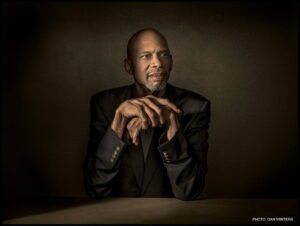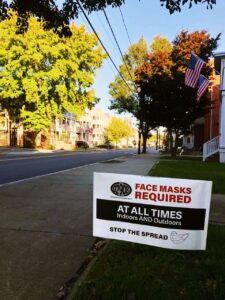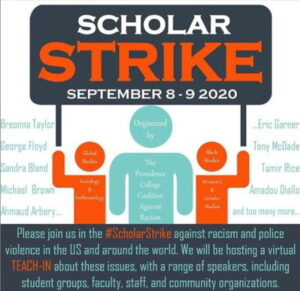Tag: Sydney Olinger ’23
Honoring MLK Not Just One Day, but Every Day: PC Celebrates Fourth Annual Martin Luther King, Jr. Convocation
by The Cowl Editor on February 4, 2021
Campus

by Sydney Olinger ’23
News Staff
As we enter the beginning of Black History Month, it is important that we reflect on the works of Rev. Dr. Martin Luther King, Jr. and all of the people who have made a difference in the fight for racial equality.
While the MLK Convocation at Providence College typically takes place over the span of five days, starting on Martin Luther King, Jr. Day, this year will be a little different. Just as many other events on campus are now being held virtually, so, too, will this year’s MLK Convocation.
As the Convocation committee began the planning process for this year’s events, they recognized the need to hold everything virtually. Because of this, they decided to extend the celebration throughout the month of February, as it is also Black History Month. The committee felt this would be a great way to not only take advantage of the new virtual platform, but to also continuously remind the PC community of what Rev. Dr. Martin Luther King, Jr. stood for throughout his life.
The MLK Convocation Week at PC was founded in 2018 by Ralph Tavares, former director of multicultural student success and assistant dean of undergraduate and graduate studies. As a PC student, Tavares was an MLK scholar, and once he began working at the College, he decided he wanted to do something special for Martin Luther King, Jr. Day to show appreciation for the scholarship the school offers and in remembrance of the 50th anniversary of the assasination of MLK, Jr.
According to Dr. Wanda Ingram, senior associate dean of undergraduate studies, Tavares’ nickname was “the mayor of Providence College,” due to the fact that he knew everyone on campus. This popularity worked to his benefit as he created a large and strong committee within three months and was able to successfully organize the first MLK Convocation Week in 2018. “I have to say, I’ve worked on a lot of committees in higher education, but I have never had so much fun and enjoyed working as I have with this Convocation committee,” said Ingram.
This year, all events will be virtual with the exception of the prayer vigil, which will be in-person and will take place in St. Dominic Chapel. The vigil celebrates and remembers the life of Martin Luther King, Jr. and is the most solemn event of Convocation Week.
Nancy Kelley, senior executive assistant to the president, believes that though next year may be a different story in terms of COVID-19 guidelines, the virtual events may continue as a way of making the events more accessible to the greater community.
Since the College instituted the MLK Convocation, it has been fortunate enough to host notable keynote speakers each year. The first year saw Bernice King, renowned orator and daughter of Martin Luther King, Jr., followed by Nontombi Naomi Tutu, daughter of Archbishop Desmond Tutu, and Ndaba Mandela, grandson of Nelson Mandela. This year, with the help of committee members Tara Baxter and Deirdre Driscoll-Lemoine ’98G, the keynote speaker will be the NBA’s all-time leading scorer, basketball legend, Kareem Abdul-Jabbar. Aside from his countless awards, his award-winning documentary, Kareem: Minority of One, displays his passion for racial equality and how he was able to overcome challenges as a Black man in his career.
Along with a keynote speaker, each year, an MLK Vision Award is awarded to a person whom the committee recognizes “as embodying all of the characteristics, meanings, values, and purposes of Rev. Martin Luther King, Jr.,” said Kelley.
There is a period of time before Convocation when people can nominate others who they believe deserve and qualify for the award. The interesting part about this award is that it is unlike most academic awards. The MLK Vision Award has been awarded to many people over the last four years, including faculty members, students, alumni, student organizations, and even people outside of the PC community.
The Convocation committee recognizes that there are numerous people who embody the role that Martin Luther King, Jr. played in our society, and believes the Vision Award should go to any and all who deserve it.
Every person that is a part of the Convocation committee, as well as all those in our Friar Family, plays an important role in making this month a time to remember one of the most influential historical figures and to reflect on the incredibly positive transformations he made in our society and the changes people continue to make in his memory.
For more information on the 2021 MLK Convocation Month and virtual events, visit https://college-events.providence.edu/mlk-convocation/.
Friars Celebrate Día de los Muertos
by The Cowl Editor on November 12, 2020
Campus

by Sydney Olinger ’23
News Staff
Despite this year’s restrictions on social gatherings, Halloweekend was still a great time to have fun while staying within pods. For many, the weekend of Oct. 31 was simply a time to wear costumes, take pictures, and hang out with friends, but for others, Nov. 1 has a different meaning.
Nov. 1, always the day after Halloween, is a day on which people within the Mexican and Latinx community celebrate Día de los Muertos. The holiday, which translates to “Day of the Dead,” is a time when people remember and honor their loved ones who have passed by conducting and taking part in a variety of different traditions.
One commonly known tradition is the setting up of ofrendas. On these small altars, families put out pictures, candles, food, and any other personal belongings of passed family members they are commemorating. The ofrendas are meant to welcome the beloved dead and honor them, even after their departure from earth. Jerusalem Castro ’23 explained, “On my family altar we have immediate family, such as my grandfather. Even though I only met him once when I visited Mexico, the stories my mom tells me about him make me feel connected to him.”
While away at college, trying to keep up with busy schedules, it is difficult for students who celebrate Día de los Muertos to be with their families on this day. And as if it was not already challenging enough, the current global pandemic did not aid in allowing students to be with their loved ones on such a special and important holiday. For this reason, two clubs on campus, the Board Of Programmers (BOP) and Organization of Latin American Students (OLAS), have worked together the past two years to make Día de los Muertos a memorable experience for the PC students who celebrate it.
Fiona Hoang ’22, member of the BOP Diversity Committee, co-sponsored this year’s virtual and in-person hybrid Día de los Muertos event with OLAS. Although the event was undeniably different from last year’s celebration with COVID-19 social distancing regulations, both clubs worked diligently to make it as special and reverent as possible.
The event was a combination of virtual connection over Zoom, handing out in-person goody bags, and an ofrenda in the Center at Moore Hall. Over Zoom, members of OLAS gave a short presentation about Día de los Muertos and then watched a film called The Book of Life. The chosen film, though similar to the recent cartoon film, Coco, is more representative of the holiday and how it is celebrated in Latin American culture.
The goody bags contained Mexican candy and the supplies needed to decorate sugar skulls and candles, which are traditional Día de los Muertos activities. Lastly, the ofrenda set up in Moore Hall was decorated with flowers and candles, and any pictures of loved ones who had passed on. Students were given the opportunity to send in any photos of family members or friends they wanted placed on the altar.
This ofrenda was important in helping students to feel as though they could still carry out their family and cultural traditions while surrounded by a community of students, many of whom come from different backgrounds and celebrate various holidays.
“I remember the energy and community gathering that the event brought last year, surrounded by food, music, and people. This year we wanted to instill a similar feeling that was applicable for everyone whether students were on-campus, remote, or in quarantine,” stated Hoang.
Featured Friar Caroline Rivera ’21: Staying Involved Even While Staying at Home
by Kyle Burgess on October 29, 2020
Features
By: Sydney Olinger ’23
It is well-known by Providence College students and faculty that the College is devoted to building up our community to reach its fullest potential. Encouragement from everyone in our community is especially important during the ongoing COVID-19 pandemic. There are many ways to be part of support efforts on our campus, but there are also many ways we can try to enact positive change. Caroline Rivera ’21 has been an integral part of enacting change on our campus and hopes to play a similar role in the necessary change for our world.
Rivera is a health policy and management major, Spanish and finance minor, and a student in the Liberal Arts Honors Program. This semester, she made the difficult decision, as a senior with many leadership positions on campus, to study remotely. Though she is working from home, she is making every effort to do her part as a Latina and leader on campus. She is currently a virtual intern at the Programs of All-Inclusive Care for the Elderly (PACE) Organization of Rhode Island, where she is developing new components of telehealth to improve older-adult care for those of low socioeconomic status. In her future career, she aspires to work as a top health administrator to provide high quality care for the marginalized populations in her community.
Growing up on Long Island, NY, Rivera attended Comsewogue High School in Port Jefferson Station. There, she developed an interest in student government as her class’s vice president for her first three years and student body president by her senior year. As a member of her high school government, she was very involved in planning events, such as dances and fundraisers, but was also a strong believer in volunteering around her local community.
This love for volunteering in the community stood strong as she transitioned to life at PC. She finds that her position as Academic Committee chair on Student Congress is an extended role of her position as student body president in high school, meaning that she still participates in planning events and fundraisers, as well as community outreach, but she is also able to offer representation for students in meetings with school administration.
This year, Rivera has implemented many of her ideas as Academic Committee chair. She has worked with the Continuity Task Force (CTF) committee, creating the One-Stop Providence College webpage where most of the College’s academic resources can be found. Recently, she spearheaded the Core Crunch event with the Academics Committee, where they provide information on the spring semester registration process and academic advising. She emphasized that this year was an especially important time for students—particularly for freshmen and transfer students who have never gone through the registration process—to receive assistance from upperclassmen and advisors through the Core Crunch. According to Rivera, the event was incredibly successful and she hopes that she can continue to be a resource for those in need.
As a member of the Latinx community, Rivera joined the Organization of Latin American Students (OLAS) her freshman year hoping to find people who shared her Latin-American culture and heritage while she was away from home and her family. She recounted that her first year of OLAS was quite different than the empowering club it is now. The club has gone from one that struggled to have weekly meetings because of a lack of dedicated members to consistent meetings with over 20 members, even throughout the COVID-19 pandemic. She worked with other executive members to promote the club, originally as the treasurer and now as the president of OLAS. Rivera describes the club as a family that has grown together to overcome the challenges that the Latinx community faces.
“At meetings, it is empowering to hear other students speak in Spanish without being ridiculed or being told to speak English. We enjoy listening to music without receiving disapproving looks, and we lean on each other when on-campus issues marginalize BIPOC and Spanish-speaking students and faculty,” said Rivera.
Some of her favorite memories come from her time as a resident assistant (RA) in Raymond Hall her sophomore year. She loved becoming acquainted with all of her residents and believes she would not be the person she is today without those experiences. After graduation this spring, she will miss her weekly Congress and OLAS meetings and fellow members, as well as her all-time favorite Take 3 quesadilla and fries.
In her almost four years as a Friar, Rivera has been an integral part of the PC community. The ideas she has implemented and the changes she has made will continue to have positive impacts on our community.
“My favorite part about PC is knowing that my professors and peers want others to succeed. In our community, individuals are not just interested to see themselves do well, they are motivated to empower others in their achievements as well,” stated Rivera.

PC Makes Comeback after COVID Outbreak
by The Cowl Editor on October 15, 2020
Campus

by Sydney Olinger ’23
News Staff
Over the past two weeks, Providence College students, faculty, and staff have faced tremendous change and uncertainty due to the current global pandemic. After the severe COVID-19 outbreak that took place at PC, impacting students living both on and off campus, faculty at PC and the Rhode Island Department of Health took extreme measures to ensure the outbreak did not spread any further in attempts to keep our school community and the surrounding community safe.
Though students may have felt frustrated, upset, or even anxious about the lockdown that affected students living on and off campus, faculty at PC have worked diligently in taking all safety precautions in order to keep our campus open and offer some sense of normalcy during these times.
Prior to the two-week lockdown, all classes were fully virtual, fully in-person, or a hybrid of the two. For the past two weeks and part of this week during the transitional period to return to in-person classes, students must attend all of their classes virtually.
Due to this change, many students residing in dorms and apartments on campus made the decision to go home after receiving a negative COVID-19 test. Although students were hopeful that this lockdown would only be temporary, there was no guarantee that the campus would reopen. These students took a chance given that they might not have been allowed to reenter campus, but thankfully, as of this weekend’s Continuity email, the school will slowly begin reopening.
“The week of Oct. 5 should be considered one of transition. There are numerous reasons that the return must necessarily be gradual, and we ask for patience as we work together through the next few days,” explained the members of the Providence College Continuity Task Force.
One of the newer COVID-19 guidelines the College has been encouraging is for students to stay in a “pod.” This essentially means the only people you should be around when you are not wearing a mask are your roommates or suitemates. For people living in off-campus housing, their “pods” are only the people living on their floor.
“Mingling with others—the most significant cause of our outbreak—remains prohibited. Think about the people in your immediate living environments like you would your family—meaning if you live in residence halls, it’s the people in your room, not all of the people in your hall,” stated the members of the Providence College Continuity Task Force.
The guidelines and rules for students returning to campus from home resemble those we followed when first moving on campus. The school requires students to present a negative point-of-origin test and to take a test at Peterson Recreation Center when they arrive on campus. Following arrival, students must quarantine in their residence hall until they receive a negative test from the College, which then allows them to go to Raymond Dining Hall and buildings that are presently open.
As of two weeks ago when the lockdown began, all buildings except for Slavin, Raymond Dining Hall, and residence halls were closed. These guidelines had to be put in place even though they very much restricted the freedom of students living on campus. These rules remain in place during this week of transitioning back to the new normal.
Although it is certainly a difficult time for students everywhere—with not being able to hang out with old friends, meet new friends, and even become acquainted with our professors—there are countless ways to accomplish all of these things virtually. It is undeniably challenging and very different from the way we lived less than a year ago, but making adjustments during this time is imperative.
Campus Ministry Creates App, Bringing the Church to You
by The Cowl Editor on October 1, 2020
Campus

by Sydney Olinger ’23
News Staff
Since the beginning of the COVID-19 pandemic and nationwide quarantine, people have been staying connected virtually through Zoom calls, social media, and many other virtual platforms. For many of the members of the Providence College community, it has been important to maintain those social relationships not only with our peers, but also with God and the Church.
To help students and faculty remain connected with their faith and more specifically, faith at PC, Campus Ministry released a new app called Providence College TORCH. The app has everything from live-streamed masses to an E-book version of the Bible.
With the app, students and faculty have access to prayers, articles, and uplifting talks with Friars and PC students. TORCH has many ways to keep users connected to their faith, but it also has resources to maintain stable mental health, which is absolutely vital in these times.
On the home screen of TORCH, there are five different tabs: Torch, Breathe, Power Up, Radiate, and Connect. Each one contains information on different topics, whether that be virtual events happening in campus ministry, reflections on Sunday’s gospel, or how to be a good citizen of God in the Providence College community and world.
The Power Up tab has the livestream, information on Peer Ministry, prayers to say on your own or with others in a socially distanced manner, analysis of the gospels, RCIA, and Godsplaining. Church Chat, a section within the RCIA category, is labelled within the app as “An RCIA Talk Show of Sorts”, so if students are not Catholic but still interested in learning more about the faith, this would be the best place to go. Godsplaining is a great place for both lifelong, newly joined, or not-yet-baptized Catholics to delve deep into the readings and mystery of the Catholic faith and learn how it relates to the present day. For students looking for something a little more meditative, the Breathe tab has many articles on how to stay mentally healthy especially during a time when we may feel isolated from the world.
“One of the most threatening things we are facing presently is isolation. In college, it’s natural for people to find themselves at home in this or that group on campus. Campus Ministry, however, has its goal outreach to every PC student. We want every Friar to know that we’re here to support them and offer resources,” stated Father Patrick Briscoe.
Fr. Patrick explains that TORCH users do not need to be a part of Campus Ministry or even to be Catholic to take advantage of all the app has to offer. TORCH will hopefully inspire all members of the PC community to engage with Campus Ministry.
One important part of the app is how it was named. Fr. Patrick elaborates on this, saying, “The name evokes the commitment to enlightenment at the heart of the College’s mission. Fire brings warmth and light in dark, in difficult times. We hope TORCH brings comfort and peace in a time marked by anxiety and suffering.”
Though the app will certainly be beneficial to staying connected to our faith and people both within and outside the PC community during this difficult time, it will continue to be an excellent platform for Campus Ministry and for others to stay involved in the Church.
Striking a Blow at Systemic Racism: PC Community Observes Scholar Strike
by Kyle Burgess on September 17, 2020
Campus
by Sydney Olinger ’23
News Staff
On Sept. 8-9, members of colleges, universities, and their surrounding communities took part in a nationwide strike to promote racial justice. These two days were reserved for people to choose to refrain from their duties and spread awareness regarding the racial tensions in our nation. This event was open to anyone and everyone who wants to participate in promoting anti-racism.
The Providence College Coalition Against Racism, along with members of Black, global, Latin American, women and gender studies, sociology, and anthropology, hosted two Zoom calls during the two days of the strike. Over one hundred people joined the call to listen and learn.
During these virtual meetings, guest speakers ranging from PC faculty to young high school students, spoke about their experiences with racial injustice and strategies and actions to make drastic change within both their communities and the country as a whole.
“As we live through a pandemic that has disproportionately impacted people of color, and Black people in particular, and watched as George Floyd and others were murdered in our streets, it has never been more urgent to understand and dismantle racist institutions, and to stop engaging in racist practices,” stated Dr. Jessica Mulligan, a professor in the health policy and management department.
Though racism is a significant issue for many reasons, the main focus of this particular strike and discussion was tackling the problem of racism in schools, whether that be elementary, high school, or higher education institutions.
Dr. Anthony Rodriguez, a professor in the elementary and special education department and one of the guest speakers, discussed his observations of racial injustice on college campuses. Rodriguez explained that public safety officers are simply doing their job and following orders from those in higher and professional positions at institutions.
He mentioned that professors call on public safety officers for issues involving Black and Brown students far too often and for things that can be simply dealt with in the classroom. “We as teachers can do better, and to be honest, in the right system, we will do better. But, it should start with the higher education programs that train them. . .We [the higher education programs] plant the seeds of deficit-oriented thinking before they even enter any classroom and have any harm on any student,” remarked Rodriguez.
Younger individuals are also recognizing the need to take a stand against racial injustice. Younger generations have come together with their schools and communities to promote this change.
Sixteen-year-old Jaychele Nicole, executive director of Gen Z We Want to Live, based in Providence, is just one example of the many young activists in our community taking action to change the way school administrators and students view the issue of racism. Gen Z We Want to Live is a youth-run organization dedicated to building a coalition of skilled, young activists prepared to fight for their generation through youth advocacy and political influence.
Nicole proposes three “things to remember” in order to be a successful activist within the PC community, using the acronym FFF: function, funding, and feasibility. Function focuses on whether a solution comprehensively addresses the problem, funding emphasizes making sure a project has the money to run, and lastly, feasibility is important to determine whether a project will be impactful and if people will support it. These are only a few of the powerful speakers who shared their insight, passion, and determination to mend the broken parts of our communities and country.
As faculty and administrators work to improve the education system in which they work, students in the younger generations work diligently to ensure that it is done right. The Scholar Strike lasted only two days, but the issues discussed and progressive actions taken by students and faculty will continue to be not only discussed, but acted upon for years to come.

racism and racial injustice. Photo courtesy of BlackAtPC.
